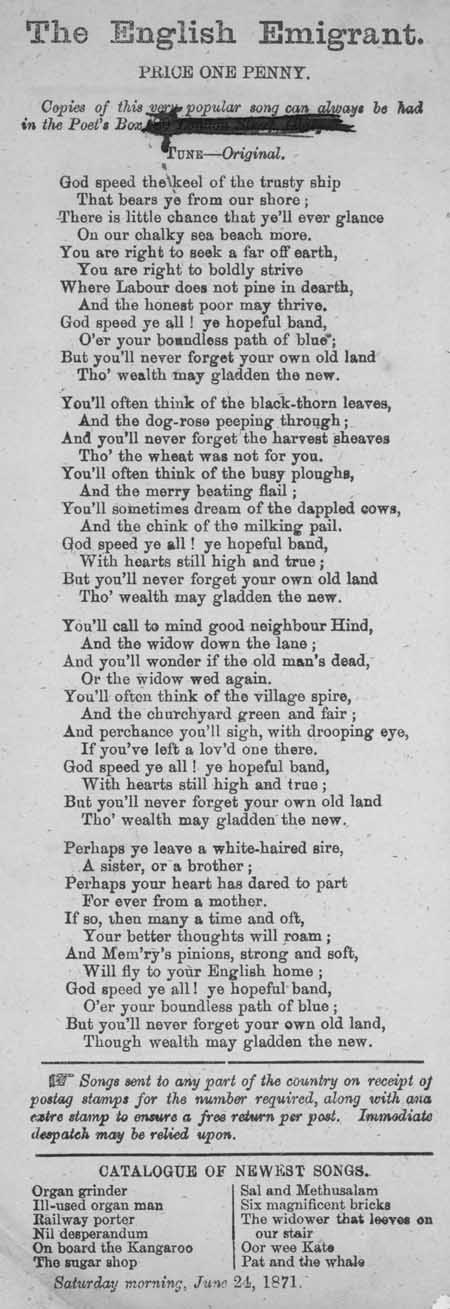Commentary
Verse 1 begins: 'God speed the keel of the trusty ship / That bears ye from our shore'. The text before this reads: 'Price One Penny. / This very popular song can always be had in the Poet's Box, 80 London Street, Glasgow. / TUNE - Original'. It was published on the 24th June 1871, probably in Glasgow. Many of the sheets which were published by the Poet's Boxes across Scotland, had part of their addresses blacked out or cut out at a later date. The reason for this is largely unclear. It possible, however, that surplus stock from one shop was shipped around the country, to boost profits. Local news and items of interest would probably have sold quicker and so perhaps the more distant address was scratched out to improve sales.
The Poet?s Box in Glasgow operated from 1849 to 1911. Matthew Leitch was the proprietor at 6 St. Andrew Lane?s, a narrow street on the south side of Gallowgate, from 1850 to 1858. His son William Munsie Leitch worked at the same address from 1859 to 1865 and at varous addresses in London Street until 1911. Many of the broadsides published by the Glasgow Poet?s Box were dated and some carried advertisements, not just for printed items but also for shoe blacking and ?soap for lovers?! Like the other ?boxes? in Dundee and Edinburgh, the Glasgow one sold love songs, sea shanties, parodies and dialogues. It is not clear what the connection between the different Poet?s Boxes were. They almost certainly sold each other?s sheets. It is known that John Sanderson in Edinburgh often wrote to the Leitches in Glasgow for songs and that later his brother Charles obtained copies of songs from the Dundee Poet?s Box. There was also a Poet?s Box in Belfast from 1846 to 1856 at the address of the printer James Moore, and one in Paisley in the early 1850s owned by William Anderson.
Early ballads were dramatic or humorous narrative songs derived from folk culture that predated printing. Originally perpetuated by word of mouth, many ballads survive because they were recorded on broadsides. Musical notation was rarely printed, as tunes were usually established favourites. The term 'ballad' eventually applied more broadly to any kind of topical or popular verse.
View Transcription | Download PDF Facsimile
|
 |
Date of publication:
1871 shelfmark: RB.m.143(137)
 View larger image
View larger image
|


